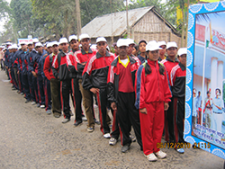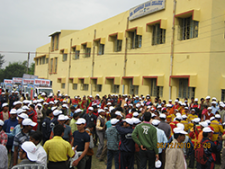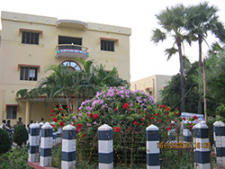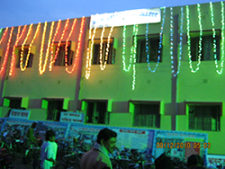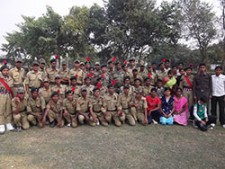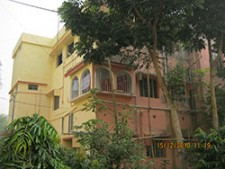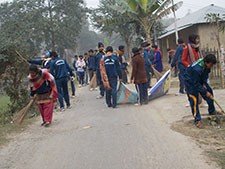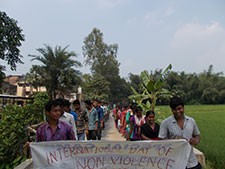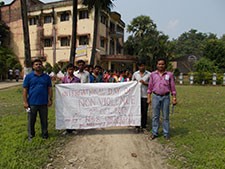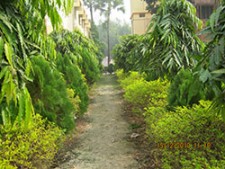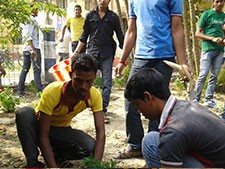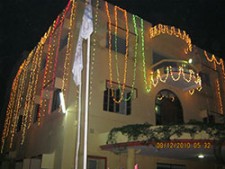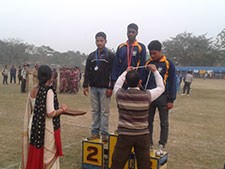Chemistry
- Introduction
- Curriculum
- Teaching Learning
- Learning Resources
- E-Learning initiatives
- Seminar, Conferences, Webinar and Workshops
- Notices & Events
- Contact Information
History of the department
The Department of Chemistry was incepted in 2007 withGeneral Course. Honours Courses was started from theAcademic Session 2010-2011 with the induction of a permanent faculty. At present the department has four faculty members. The department has dedicated laboratories and classrooms equipped with ICT facilities.
Vision and Mission
-
-
- To create an academically sound environment that nurtures, motivates and inspires excellence in research and teaching in chemical sciences along with concern for society.
- Prepare competitive and professional graduates within an innovative and intellectually stimulating environment.
- Conduct basic and advanced education, build enough knowledge in chemistry and offer effective trained educational services to the society.
- Enhance the quality of the chemistry and industrial chemistry programs.
- To impart theoretical and practical training in broad areas of chemical sciences to encourage creativity, insight development and passion for science.
-
Honours Program:
Objective of the honours program:
The program objectives for BSc (Hons) Chemistry graduates are;
-
-
- To build the foundation in the fundamentals and applications of current chemical and scientific theories including those in Analytical, Inorganic, Organic and Physical Chemistry.
- To equip student with the advanced tools and techniques.
- To familiarize students with the emerging areas of Chemistry and their applications invarious spheres of Chemical sciences.
- To develop the skills of students in the proper handling of apparatus and chemicals.
- To explore the students into the new areas of research in chemistry and allied fields of science and technology.
- To make the students explain why Chemistry is an integral course for addressing social, economic, and environmental problems.
-
Syllabus for the honours program:
For CBCS Students:
For 1+1+1 system students:
Course outcome:
DC-1– Organic Chemistry – I:
Students can understand the concepts of basic organic chemistry on which the theory of organic chemistry are based. They shall make the sense of molecular structures and atomic rearrangement in molecules.
DC-2- Physical Chemistry – I:
This paper helps the students to buildthe back bone on main topics on physical chemistry such as chemical thermodynamics, chemical kinetics, kinetic theory etc. Again the practical course will make them understand about the physical significance of kinetics, ionic equilibrium etc.
DC-3-Inorganic Chemistry-I:
This segment of the syllabus students get to learn about structure of atom, chemical periodicity, acid-base etc. which are the main pillars of inorganic chemistry.
DC-4-Organic Chemistry II:
This paper deals with the fundamentals ofstereochemistry and mechanism of organic chemistry. Moreover the practical portion is designed in such way that the students can learn the preliminary work of organic synthesis.
DC-5- Physical Chemistry – II:
In this part of the syllabus students are able to understand the foundation principles of quantum chemistry and preliminary concepts of electrochemistry and the physical applications o0f thermodynamics.
DC-6- Inorganic Chemistry – II:
Chemical bonding and importance are studied in this section. Moreoverestimation of metal content in samples are done practically in this paper.
DC-7- Organic Chemistry – III:
This paper deals withchemistry of alkenes and alkynes, aromatic substitution, carbonyl and related compounds, organometallics. These contents introduce the students into the versatile field of advanced organic chemistry.
DC-8- Physical Chemistry-III:
The syllabus covers about the understanding of modern physical chemistry such as detailed quantum chemistry and their applications. Moreover the practical portion helps them to apply the theoretical formulas in practical reaction purposes.
DC-9-Inorganic Chemistry – III:
From this paper the students can learn about the general principles of metallurgy, chemistry of s and p block elements, noble gases and inorganic polymers. Again the foundation concepts of coordination chemistry are also introduced in this segment.
DC-10- Organic Chemistry – IV:
This paper contains organic reactions of all nitrogenous compounds and introduces the students into the field of organic sprectoscopy.
DC- 11- Inorganic- IV:
From this segment of the syllabus students learn about advanced coordination chemistry and chemistry of d and f block elements. In practical students learn about the most important topic of analytical chemistry- chromatography.
DC-12- Organic Chemistry – V:
Carbocycles and heterocycles, cyclic stereochemistry, pericyclic reactions, carbohydrates, carbohydrates, biomolecules are the subject matter of this paper which introduces the students to the higher levels of organic chemistry. These topics are the building pillars of research in organic chemistry.
DSE-1- Advanced Physical Chemistry:
From this segment students get an in depth idea about crystal structure,statistical thermodynamics, Special selected topics& computer programming based on numerical methods.
DSE- 2- A, Analytical Methods in Chemistry:
This paper deals withqualitative and quantitative, optical methods of analysis, thermal and electroanalytical methods of analysis, separation techniques.
Or
2- B- Polymer Chemistry:
Students are given an idea of introduction, functionality and its importance, kinetics of polymerization, crystallization and crystallinity, nature and structure of polymers, molecular weight of polymers, glass transition temperature (Tg), polymer solution, Properties of polymer.
DC- 13- Inorganic Chemistry – V:
Upon successful completion of this course, the student will be able to apply the basic principles in inorganic and general chemistry to interdisciplinary topics in the field of bioinorganic chemistry and describe the role of metal ions in enzymes involved in acid-base reactions.
DC-14- Physical Chemistry – IV:
This paper deals with the molecular spectroscopy, photochemistry, surface phenomenon. The practical portion helps the students to correlate physical properties in practical sense.
DSE-3- A- Instrumental Methods of Chemical Analysis:
The particular segment containsintroduction to spectroscopic methods of analysis, molecular spectroscopy, chromatography, elemental analysis, NMR spectroscopy etc.
DSE-3-B- Inorganic materials of industrial importance:-
This paper gives an idea of basic concepts and theories on silicate industries, chemical explosives, batteries etc. This helps the students in developingindustrial knowledge.
DSE- 4- Green Chemistry:
The present environmental conditions are too much vulnerable and thus study of green chemistry becomes very important for students which provide the knowledge that chemistry development is not the only target of study but all should be aware how to deal with the chemicals.
DP-4(6)-Project:
In this segment students get an idea of the Participatory Method of Learning by doing a project work under the supervision of respective teachers.
Generic Elective:
Objective of Generic Elective:
The aim of bachelor’s degree programme in chemistry is intended to provide:
-
-
- Broad and balance knowledge in chemistry in addition to understanding of key chemical concepts, principles and theories.
- To develop students’ ability and skill to acquire expertise over solving both theoretical and applied chemistry problems.
- To provide knowledge and skill to the students’ thus enabling them to undertake further studies in chemistry in related areas or multidisciplinary areas that can be helpful for self-employment/entrepreneurship.
- To provide an environment that ensures cognitive development of students in a holistic manner. A complete dialogue about chemistry, chemical equations and its significance is fostered in this framework, rather than mere theoretical aspects.
- To provide the latest subject matter, both theoretical as well as practical, such a way to foster their core competency and discovery learning. A chemistry graduate as envisioned in this framework would be sufficiently competent in the field to undertake further discipline-specific studies, as well as to begin domain-related employment.
-
Syllabus for the Generic Elective:
For CBCS students:
For 1+1+1 system students:
Course outcome:
DC-1- Inorganic Chemistry – I & Organic Chemistry – I:
The syllabus of this paper is designed in such way that students can be introduced to the study of deeper chemistry with the concept of preliminary inorganic and organic chemistry. Studied this paper students become familiar with atomic structure, chemical periodicity, fundamentals of organic chemistry, stereochemistry etc.
DC-4- Physical Chemistry – I & Inorganic Chemistry-II:
States of matter & chemical kinetics, chemical bonding & molecular structure, p-block elementsis been studied by the students. Thus they can make clear idea about atomic arrangement in a molecule.
DC-7- Physical Chemistry – II & Organic Chemistry-II:
This paper contains laws of thermodynamics, chemical equilibrium, ionic equilibrium, organometallic compounds, alcohols, carbonyl compounds etc. Students gather knowledge about organic name reactions, reaction mechanism, deeper physical chemistry.
SEC-1- Basic Analytical Chemistry:
This paper makes clear idea on modern analytical theories for the students, which can be applied in different fields.
DC-10- Physical Chemistry – III & Analytical and Environmental Chemistry:
Different quantitative analytical methods, environmental chemistry, conductance etc. are included in this paper.Again the practical portion makes the students understand about the physical significance of different theories of physical chemistry.
SEC-2- IT skills for Chemist:
This paper makes improvement in basic mathematics needed for chemistry study and basic computer knowledge for the students.
DSE-1- Inorganic Chemistry – III & Analytical and Industrial Chemistry:
At the completion of this course, students should be able to apply principles of basic analytical and industrial chemistry. Again they shall acquire knowledge and understand the construction & working of various equipments used in distillation, extraction, leaching, drying, absorption and filtration etc.
SEC–: Pharmaceutical Chemistry:
Upon completion of the course the student shall be able to understand the chemistry of drugs with respect to their pharmacological activity and understand the drug metabolic pathways, adverse effect and therapeutic value of drugs.
DSE-1- Advanced Organic Chemistry & Industrial Chemistry:
This paper shall help the students by making understand the electrophilic and nucleophilic reactions; addition, substitution, replacement and rearrangement reactions; knowledge of important reagents used in chemical industries and understand the reaction mechanism of various name reactions.
SEC-2- Analytical Clinical Biochemistry:
Upon successful completion of the course, the student will be able to draw or describe the structure of amino acids, proteins, enzymes, chemical messengers, carbohydrates, lipids, and nucleic acids. Again they will able to write the chemical reactions involved in biochemical pathways that produce ATP, such as citric acid cycle and electron transport.
Faculty profile:
| DR. MD. BELAL, PhD | 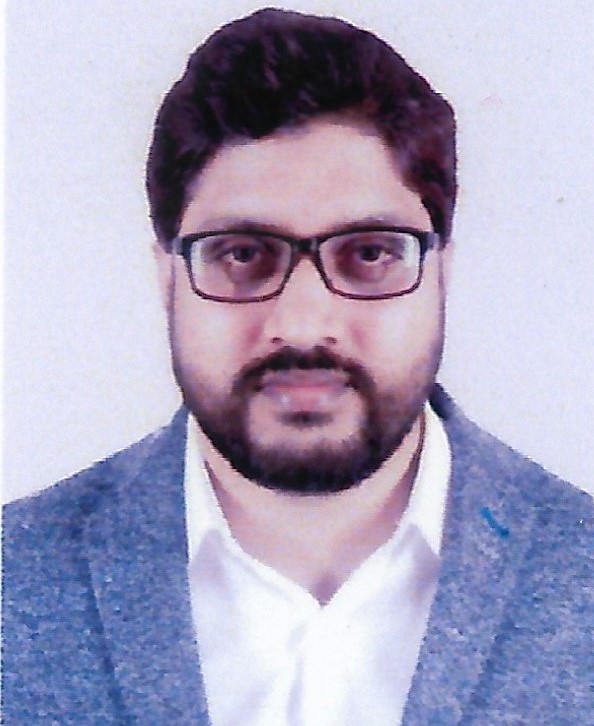 |
| Assistant Professor & HOD | |

|
| Ushashi Mitra | 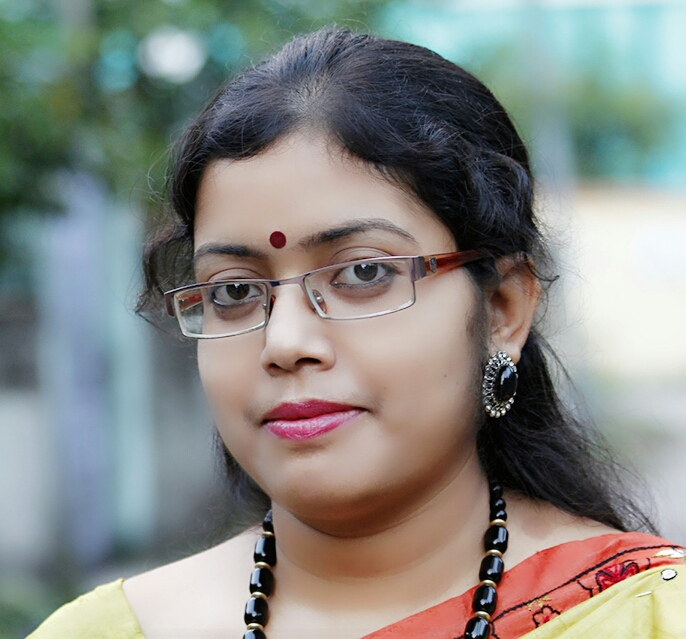 |
| SACT | |
| B.Sc (H), M.Sc ( CHEMISTRY) | |

|
| Kishor Kumar Das | 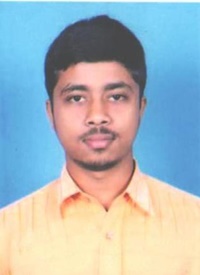 |
| SACT | |
| B.Sc (H); M.Sc (Chemistry). | |

|
| Nasima Akhter Banu | 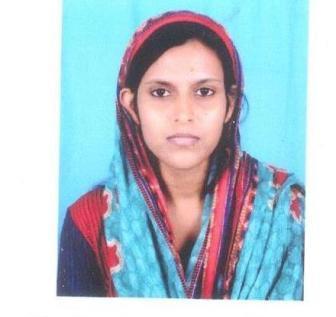 |
| SACT | |
| B.Sc (Hons), M.Sc in Chemistry | |

|
Students:
Chemistry honours intake capacity & distribution of seat (category wise)
| UR | OBC-A | OBC-B | SC | ST | PH | TOTAL |
| 11 | 03 | 02 | 06 | 02 | 0 | 24 |
Enrollment 2019-2020, 1st semester honours
| UR | OBC-A | OBC-B | SC | ST | PH | TOTAL |
| 6 | 3 | – | – | – | – | 09 |
Enrollment 2019-2020, Part-II honours
| UR | OBC-A | OBC-B | SC | ST | PH | TOTAL |
| – | 2 | – | 1 | – | – | 03 |
Enrollment 2019-2020, Part-III honours
| UR | OBC-A | OBC-B | SC | ST | PH | TOTAL |
| 2 | – | – | – | – | – | 02 |
Chemistry General Course
| Section-A | Section-B | Section-C | TOTAL |
| 12 | NA | NA | NA |
Teaching Methodology:
-
-
- Lab based learning:
-
“Laboratory activities appeal as a way of allowing students to learn with understanding and at the same time engage in the process of constructing knowledge by doing science”- this citation is used to apply practically in the department.In the laboratory students carry out hand on experiments. The department has laboratories for both honours and general students.
-
-
- Internal assessment:
-
Throughout the year internal assessments are taken at regular intervals by the department to test the development of the students. The internal assessment procedure divides the syllabus in smaller parts and assesses the individual student’s development in the selected part of the syllabus. The continuous process of evaluation also prepares the student for the final examination.
-
-
- Group Discussion:
-
After completion of each topic group discussions are arranged for the students to develop clear concept of that concerned topic.
-
-
-
-
- Participatory learning:
-
-
-
Along with the traditional chalk and board method the department has also ICT based classroom. All classes whether it is theory or practical- are taken routine wise by the teachers in an interactive way. Students are constantly encouraged to ask questions and clarify their doubts.
-
-
-
-
- Strategies for slow learners:
-
-
-
Slow learners are identified from result sheet and then special remedial classes are taken to improve their performance.
Yearly special lectures, seminars are arranged by the department to aware the students about the modern research field of chemistry and motivate them to go for higher education and research field to explore chemistry.Moreover in every year departmental exhibitions are organized where students actively participate. They design various types of models and prepare charts enthusiastically. Judges from different institutes are invited to give their valuable judgement.
a) One Day Online National Seminar onChemistry of Health & Wellness:-
| Date | Name of the Resource Person | Number of Participants | Level | Outcome |
| 06/07/2020 | 1)Dr. DebasishMaiti
Professor
Department of Human Physiology
Tripura University
Suryamaninagar, Tripura
3) Dr. SamitGuha Assistant Professor Department of Chemistry Jadavpur University, Kolkata, West Bengal |
125 | National Webinar |
b) Recent trends in Physical Science:-
| Date | Name of the Resource Person | Number of Participants | Level | Outcome |
| 18/03/2019 |
Malda College,Malda 2) Dr. Pinaki Chakraborty Associate Professor in Physics RaiganjUniversity,Raiganj 3) Dr. Subhamoy Chowdhury Associate Professor in Chemistry University of Gaur Banga, Malda |
74 | National | Dr. Chatterjee in his lecture also pointed out many mysterious phenomena which are still not explainable, such as the origin of the Universe, Black hole, Gravitational wave, the age of our earth and other planets. It may ultimately help us in the distant future to know whether life exists on any other planet or heavenly body.In the seminar, Dr. Pinaki Chakraborty had talked about Non-Volatile Memory Devices. At present all of us are surrounded by electronic devices which are memory based. From his lecture students came to know about the functioning of the memory elements in a device like smartphone or computer. He had discussed about some ongoing trends in memory devices. |
c) Special Lecture: Plastic Pollution and its remedies in semi urban area
| Date | Name of the Resource Person | Number of Participants | Level | Outcome |
| 29/03/2019 | Dr. DilipDebnath Professor Cooch Behar PanchananBarma University Cooch Behar | 81 | State |
CEMH NOTICE DATE-2019.01.09 (2)
CEMH NOTICE DATE-2019.02.07 (2)
CEMH NOTICE DATE-2018.01.20 (2)
CEMH NOTICE DATE-2018.01.02 (3)
CEMH NOTICE DATE-2018.01.02 (2)
CEMH NOTICE DATE-2017.09.05 (2)
CEMH NOTICE DATE-2017.08.31 (2)
Email: chemistry@gmail.com
WhatsApp Group Link
Semester-1: CLICK HERE
Semester-2: CLICK HERE
Part-2: CLICK HERE
Facebook Page: CLICK HERE


